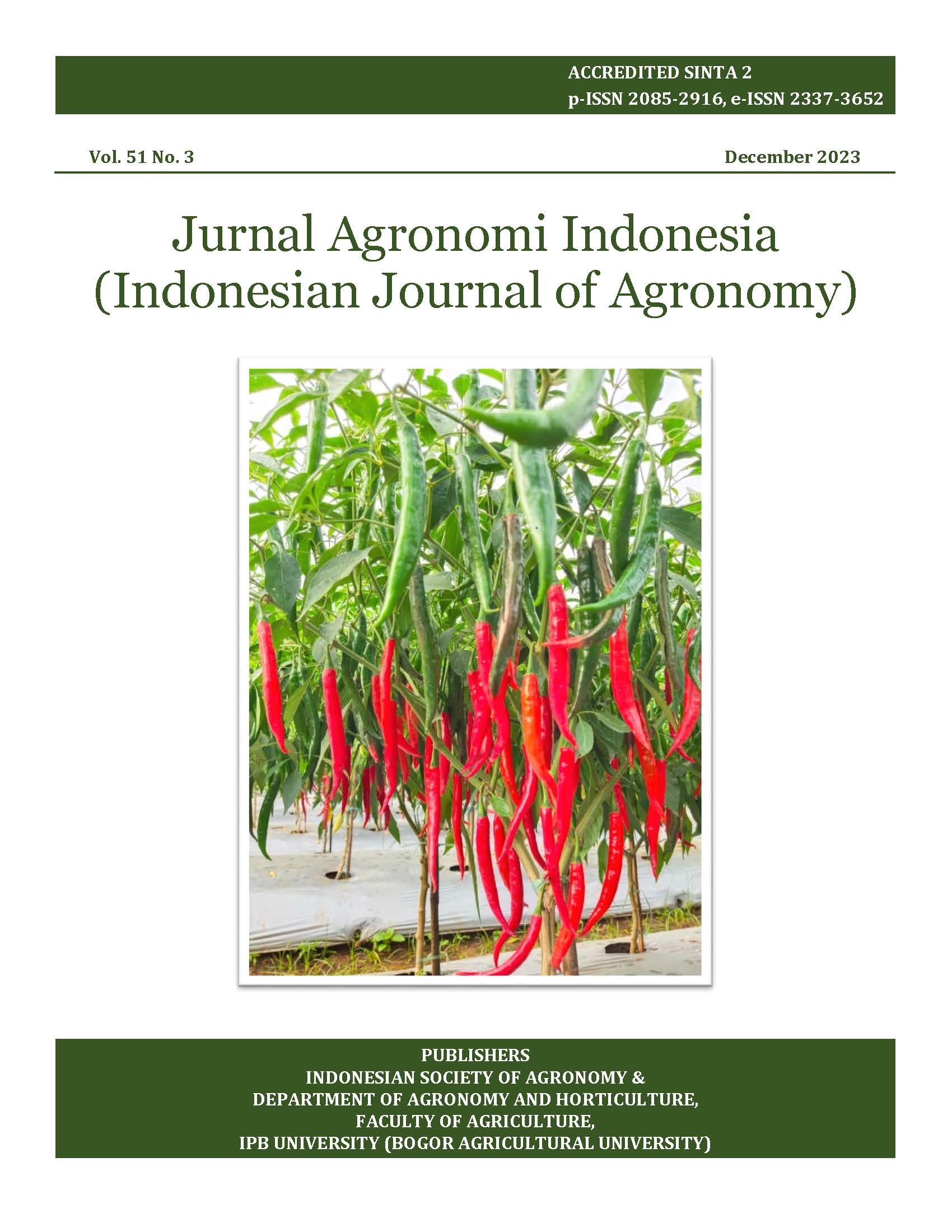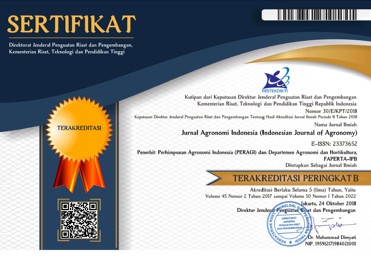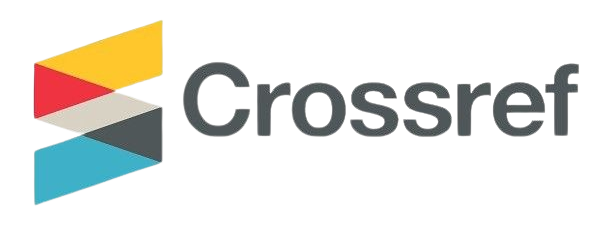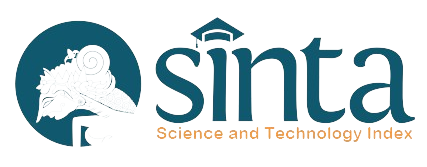Effect of varieties and applications of clove oil on growth, productivity, and pest and disease resilience of soybean
Abstract
Efforts to increase soybean productivity are carried out in various ways, including improving cultivation technology and applying pest and disease control technologies for soybeans. In addition to chemical pesticides, pest and disease control can use botanical pesticides or biopesticides, including those made from clove oil. This study aimed to determine the effect of varieties and clove oil on the growth, production, and pest-disease resilience of soybean. The study was conducted at Majalengka Regency, West Java, Indonesia from April to July 2021. The research used a factorial randomized complete block design with four replications. The first factor was soybean genotypes: Dena 1, Dega 1, and Anjasmoro. The second factor was the concentration and interval of application of clove oil: control, 3 mL L-1 with an interval of 10 days, 3 mL L-1 with an interval of 15 days, 5 mL L-1 with an interval of 10 days, and 5 mL L-1 with an interval of 15 days. The results showed that the Dena 1 variety had the highest plant height, number of branches, number of pods per plant, and dry weight per plant. The Dega 1 variety produced the highest weight of plant dry mass, dry pod shell weight, and 100-grain. Anjasmoro variety had the highest root length and number of nodules per plant. The Anjasmoro was more resistant to leaf caterpillar attacks, while the Dena 1 was more resistant to leaf rust disease. Botanical pesticides derived from clove oil affected various aspects of soybean growth including plant height at 60 days after planting, weight of dry biomass, root length and number of root nodules per plant, dry pod shell weight, dry seed weight, and 100-grains weight.
Keywords: botanical pesticide; clove oil; Glycine max; root nodulation; variety













